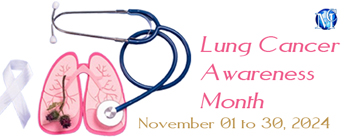Journal of
eISSN: 2376-0060


Commentary Volume 2 Issue 4
Pima Medical Institute, USA
Correspondence: ÿErin Smith, Pima Medical Institute, 54 Moonrise Way, Henderson NV, 89074, USA, Tel 702-785-8800
Received: February 16, 2015 | Published: April 13, 2015
Citation: Smith E. Substance abuse and asthma. J Lung Pulm Respir Res. 2015;2(4):75. DOI: 10.15406/jlprr.2015.02.00050
This paper explores growing issue of substance abuse and asthma. An overview of the disease process is given. Information from several resources has been gathered with the conclusion that heroin, cocaine, alcohol and tobacco have a negative impact on asthma. Information is provided about the withdrawal process.
In America, 25million people are diagnosed with asthma. Of those, 500,000 are hospitalized annually and 4,000 die as a result of their disease. Asthma is characterized by reversible broncho-constriction, airway inflammation and airway hyper-responsiveness to a variety of stimuli.1 The airways become congested with thick, white mucus. The mucus can form into plugs, occluding airways and resulting in Atelectasis. Mucosal edema can also occur. The combined problems of mucus, broncho-constriction and edema lead to alveolar hyperinflation. When a severe exacerbation doesn't respond to conventional therapy, it is termed “status asthmaticus.” In these cases, mechanical ventilation is often necessary. To prevent this from happening, patient education is key. Patients should be educated to use a peak flow meter, be compliant with treatment and avoid triggers, such as substance abuse habits. Substance abuse is a risk factor for status asthmaticus. It can cause repeated, severe exacerbations. The substances themselves can trigger asthma symptoms. The substances can also cause depressed moods which may trigger exacerbations.2 Substance abuse can also cause issues with compliance. “Research has shown that taking recreational drugs means it’s more likely you’ll miss taking your asthma medicine.2
Heroin, cocaine, alcohol and tobacco have negative effects on asthma. “Life-threatening asthma attacks have been caused by smoking or snorting heroin.3 Smoking or snorting cocaine can lead to more severe symptoms and exacerbations of asthma.2 One study assessed the link between cocaine and the severity of an asthmatic's presentation to the emergency department. They found a positive correlation between cocaine usage and severity of exacerbations; exacerbations were more severe in the cocaine-positive group.4 Another study found that lengths of stay for asthmatics in the hospital were higher for cocaine-positive patients.5 “It is intuitive that cocaine abuse via the respiratory tract (smoking or snorting) would exacerbate reactive airway disease”.5 Even alcohol can trigger asthma. It can cause depression and anxiety, impacting compliance with medication.2
Tobacco abuse arguably has the worst impact on asthmatics. People with asthma who smoke cigarettes experience worsened symptoms, poorer asthma control, higher dosages of preventer medication needed, more frequent usage of oral steroids needed, higher anxiety and depression scores and more hospitalizations.6 Smoking cigarettes can trigger asthma symptoms by irritating the airways. Cigarettes also cause permanent lung and airway damage. Airways become irreversible narrowed from inflammation and scarring. Chronic obstructive pulmonary disease, emphysema or chronic bronchitis, can also develop. This causes dyspnea in conjunction with dyspnea already experienced from asthma. Asthmatics who smoke cigarettes have a different type of airway inflammation. “Current smokers were more likely to have a non-eosinophilic type of airway inflammation, and thus more likely to be poorly responsive to corticosteroids.6 Lastly, cigarette smoke damages cilia. The body's ability to sweep irritants out of the airways is impaired. Mucus and toxic substances are allowed to collect in the lungs, causing further lung disease.
Detoxification and treatment from heroin and cocaine addiction is vital. Suboxone and Methadone are prescription medications available to alleviate the discomfort from heroin withdrawal. Ibuprofen can alleviate muscle aches. Anti-diarrhea medication can alleviate stomach discomfort. Melatonin can help the patient sleep.7 “It is strongly suggested that heroin addicts spend a minimum of 90days in an inpatient/residential recovery center”.7 Patients should utilize counseling and self-help groups such as Narcotics Anonymous. Patients should avoid high-risk situations and seek help immediately if they use illegal substances again. The patient should be educated on the negative impact alcohol could have on their disease and that they should consume alcohol with caution and responsibility. Nicotine therapy by patch, spray, gum or lozenges can help with smoking cessation. Patients should be educated that asthma symptoms can worsen when you quit smoking. This is because your airways can now clear themselves out. After this stage, improvement will be evident.
None.
The author declares no conflict of interest.

©2015 Smith. This is an open access article distributed under the terms of the, which permits unrestricted use, distribution, and build upon your work non-commercially.
 November is Lung Cancer Awareness Month, a vital opportunity for us to raise awareness about the dangers of lung cancer. Let’s unite to educate ourselves and others, and inspire proactive steps toward lung health. This year the motto of this event is “Stronger Together: United for Lung Cancer Awareness”. So for this occasion, the Journal of Lung, Pulmonary & Respiratory Research invites articles that emphasize the significance of lung protection. All the submissions received in the month of November will be offered with 40% discount on publication.
November is Lung Cancer Awareness Month, a vital opportunity for us to raise awareness about the dangers of lung cancer. Let’s unite to educate ourselves and others, and inspire proactive steps toward lung health. This year the motto of this event is “Stronger Together: United for Lung Cancer Awareness”. So for this occasion, the Journal of Lung, Pulmonary & Respiratory Research invites articles that emphasize the significance of lung protection. All the submissions received in the month of November will be offered with 40% discount on publication.